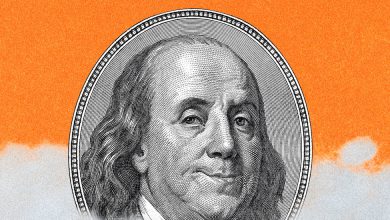London Breed and the Return of Tough-on-Crime Democrats

We have a violence problem. This fact can no longer be ignored. Homicides increased more than 5 percent in 27 major American cities in 2021 over 2020, according to one study. Last year, at least 12 of those cities broke annual homicide records. Murders in New York City rose by 4 percent and in Chicago by 3 percent, following huge increases (45 percent and 55 percent, respectively) in 2020. In Los Angeles, homicides rose by 12 percent in 2021.
This crisis has landed squarely on the doorstep of Democrats, who control Washington and the statehouses of several large states, dominate many city governments and control urban policing agencies, and yet still seem unable to mount a cohesive response, divided between doctrinaire progressives and ambitious career politicians. None of this bodes well for public safety or criminal justice reform.
Progressive prosecutors, like Alvin Bragg in Manhattan, Chesa Boudin in San Francisco and George Gascón in Los Angeles, are still dogmatically devoted to reducing law enforcement’s footprint. At the same time, some Democratic mayors who once embraced the righteous indignation of grass-roots efforts to defund the police, like London Breed in San Francisco, have had a change of heart.
In the aftermath of George Floyd’s murder, Ms. Breed redirected millions of dollars from law enforcement to social programs. Then a spike in violence hit her city. From 2020 to 2021, fatal and nonfatal shooting incidents rose by 33 percent in San Francisco. And in December, she declared a state of emergency to combat illicit drug use and dealing in the city’s Tenderloin neighborhood. “I’m proud this city believes in giving people second chances,” she said, before insisting that there needs “to be accountability when someone does break the law.” As she put it in her speech, “Our compassion cannot be mistaken for weakness or indifference.”
For his part, Mr. Boudin has lambasted “knee-jerk reactions” and “shortsighted” approaches to his city’s crime problem and recommitted himself to “addressing root causes of crime.”
This clash is not new. During the 1960s, the political scientist James Q. Wilson described the tension between “professional” Democrats like Ms. Breed and reformers he called “amateur” Democrats. According to Dr. Wilson, reformers are guided primarily by “ideas and principles” and believe public policy should deliberately reflect their values. For the professional Democrat, politics is about “winning or losing,” and public policy emerges from the “struggle for personal and party advantage.”
That’s the conflict currently debilitating the politics of crime within the Democratic Party. Reformers like Mr. Bragg, Mr. Boudin and Mr. Gascón have issued edicts to staff attorneys in their offices that reflect a headstrong commitment to reducing incarceration. Concerned about the collateral consequences of imprisonment, Mr. Bragg’s “Day 1 Memo,” for example, mandated that “alternatives to incarceration should be the norm, not the exception.” By reserving carceral remedies for only the most heinous offenses, such as murder, sexual assault and financial crimes involving large sums of money, Mr. Bragg’s missive epitomizes the style of the “amateur” in the way it subordinates context and contingency to a guiding principle. Mr. Bragg, to his credit, has begun to exhibit more flexibility in response to public pressure, but so far, he’s alone.
To be clear, these reformers, as Dr. Wilson would have called them, are not unaware or unconcerned with violence in the streets. They’re simply heeding a theory that holds that addressing “root causes” will prevent violence in local communities while sparing them from the scourge of imprisonment. Yet, as their offices test this proposition, they might be unduly constraining their ability to remove specific threats to public safety, and, as such, they just might be harming the communities they seek to help.
Many professional politicians are falling prey to a different kind of blindness, reflexively embracing enforcement remedies. Moved by rising violence in the streets and horrific media accounts, Mayor Eric Adams of New York, who eked out a victory in a crowded primary field that included more-radical criminal justice reformers, declared, “We will not surrender our city to the violent few.” He has called on New York State to enact more restrictive bail provisions and plans to revive an anti-crime unit that was accused of misconduct and racial profiling. This is the essence of Dr. Wilson’s professional: an acute sensitivity to the current mood. During the uprisings of 2020, many professional Democrats assumed the mantle of reformer. Now their political impulses are causing them to subordinate context and contingency to “law and order.”
Yet both the “amateur” and the “professional” should beware.
It’s critical for reformers not to misread the great racial awakening. Even as many took to the streets to “defund the police,” city residents, especially those who have endured histories of overpolicing and underprotection, hold complicated views on these issues. Right after George Floyd’s murder in Minneapolis ignited a conflagration that consumed the nation, 50 percent of Black voters in that city opposed reducing the size of the city’s police force, and 49 percent believed that doing so would have a “negative” effect on public safety, according to a poll conducted for a consortium of Minnesota news outlets. Last September, a poll conducted for the same group, with PBS’s “Frontline,” found that 74 percent of Black voters in Minneapolis said they believed crime had increased in the city. Unsurprisingly, the proportion of Black voters opposing reductions in the size of the city’s police force had climbed to 75 percent.
Violence also looms large in the minds of New Yorkers. When asked, “What worries you about living in NYC?” in a recent survey, respondents ranked crime and public safety near the top of concerns after the cost of living and the cost of housing. When asked to list priorities for the new mayoral administration, public safety, including guns and drugs, topped the list. Only 3 percent mentioned police and criminal justice reform, including 3 percent of Black respondents and 3.2 percent of Latinos.
Even so, professional Democrats should resist the temptation to find refuge in the political security blanket of “law and order.” Palpable fear in the streets must be met with seriousness, compassion and nuance: People want more than just punishment. In that same poll of New Yorkers, when asked “What would make you feel safer in your neighborhood?,” respondents prioritized “more stable and affordable housing,” “more mental health support and outreach” and “more job opportunities for young people” over “more police presence.”
These beliefs are not contradictory. City residents seek instant relief from the pangs of violence and a long-term cure for the underlying disease. A few years ago, Lisa L. Miller, a political scientist, found that “aggregate public attention to crime is more in line with actual violent crime than researchers assume” and that most people believe both law enforcement and social welfare policy contribute to greater public safety. Political elites are the problem. Attentive to public outcry and law enforcement groups, they tend to expand capacity around policing and punishment without increasing resources for social programs that could also decrease violence.
Today, Democrats could chart a new path. Progressive D.A.s and Democratic mayors, with the support of Democrats in Washington and state capitals, could begin a coordinated attack on violence that responds to the public’s desire for both immediate solutions and more gradual structural remedies.
Consider two examples: Aaron Chalfin, a University of Pennsylvania criminologist, and his colleagues recently found that in the aftermath of targeted gang “takedowns” (arresting dozens of feuding gang members at the same time) in housing projects in New York City, shootings and homicides in those communities declined by roughly a third. On the other hand, the Manhattan Institute’s Charles Fain Lehman found that someone who gets a summer job is between 30 percent and 40 percent less likely to be charged with either violent or property crime. These findings suggest that focusing enforcement remedies on the small number of individuals responsible for most of the crime and expanding capacity around effective community-based solutions could offer protection for the disadvantaged without subjecting them to indiscriminate harassment, brutality or mass imprisonment. But a party at war with itself can provide neither greater peace nor sustainable reform.
The stakes couldn’t be higher. If progressive prosecutors and professional Democrats fail to execute a coordinated approach that blends effective, targeted law enforcement with robust social policies, violence will continue to rise. Persistent fear might lead to a clamor for aggressive policing and incarceration. If that happens, professional Democrats might find themselves once more in a political wilderness, and all the marching in the streets and voting for reformers in defense of Black lives would have been for naught.
Michael Javen Fortner (@ProfFortner) is a professor of government at Claremont McKenna College and the author of “Black Silent Majority: The Rockefeller Drug Laws and the Politics of Punishment.”
The Times is committed to publishing a diversity of letters to the editor. We’d like to hear what you think about this or any of our articles. Here are some tips. And here’s our email: [email protected].
Follow The New York Times Opinion section on Facebook, Twitter (@NYTopinion) and Instagram.





